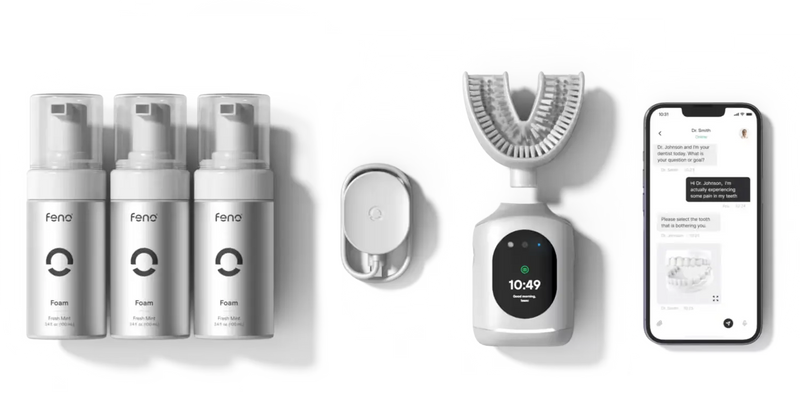
Iron Deficiency Anemia & Oral Health: What Your Mouth Reveals
Essential Takeaways
- Iron deficiency anemia reduces oxygen to oral tissues, causing pale tongues, slower gum healing, and increased infection risk. Restoring iron levels can reverse these symptoms.
Your mouth is a window into your blood health. When iron levels drop, your bloodstream carries less oxygen to oral tissues, causing visible changes in your gums and tongue. Understanding this connection helps catch early warning signs.
(Frontiers in Nutrition, 2023)
Classic Signs of Iron Deficiency in Your Mouth
Pale or Smooth Tongue (Atrophic Glossitis)
A pale, smooth tongue is a hallmark sign of iron deficiency. Healthy tongues have textured bumps called papillae; when iron drops, these flatten and disappear, creating a glossy appearance and loss of color.
Other Changes:
-
Angular cheilitis (cracks at mouth corners)
-
Oral ulcerations
-
Pale gum tissue
Low Iron Compromises Gum Health
Iron is essential for immune function and tissue repair. Low iron weakens your white blood cells, increasing infection risk and slowing gum healing after dental procedures. This extends the window for gum infections like periodontitis and oral thrush.
The Good News
Oral lesions associated with iron deficiency often improve or resolve once iron levels are restored through supplementation or dietary changes.
(Frontiers in Nutrition, 2023)
Protective Steps
1. Eat Iron-Rich Foods
Red meat, poultry, fish, legumes, dark leafy greens, and fortified grains. Pair with vitamin C for better absorption.
2. Schedule Regular Dental Checkups
Visit your dentist every 6 months. They can identify early oral signs of iron deficiency.
3. Protect Your Oral Hygiene
Anemia causes fatigue. Set reminders, use an electric toothbrush, or keep floss accessible to maintain basic hygiene.
For days when fatigue makes brushing harder, the Feno Smartbrush™ can help maintain consistent care. Its personalized mouthpiece cleans all teeth in 20 seconds, ensuring full-mouth coverage even when energy is low. Feno helps monitor gum and tongue changes that may reflect nutritional or systemic shifts over time.
4. Address the Root Cause
Work with your doctor to identify and treat the underlying cause of your anemia.
Bottom Line
Iron deficiency and oral health are deeply connected. The good news? This is reversible. Restoring iron balance through proper nutrition and medical care supports stronger gums and faster healing.
If you've noticed changes in your tongue's appearance or difficulty with gum healing, talk to your doctor about iron deficiency screening.

Feno Founders Edition Bundle
Advanced Oral Health in 20 Seconds with the Feno Smartbrush™
Get Yours Now!





